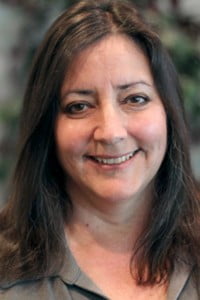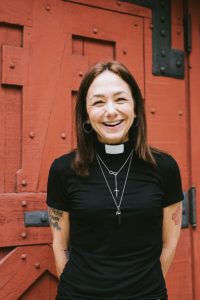QUESTION: Our grandson began taking drugs when he was 15. We didn’t find out right away but when we did, his psychiatrist told us he was “self-medicating” to deal with the loss of his dad, who died in a car accident. Fortunately we had the financial means to send him to rehab, and he went willingly. He finished high school, was taking college classes, had a part-time job, and then got into drugs again. We found out this time because he over-dosed and almost died. He’s asking to go back into rehab and promises he’ll stay clean.
We would like some advice.
~ Undecided Grandparents
Dear Undecided Grandparents,
“The Lord is near to those who are discouraged; he saves those who have lost all hope. Good people suffer many troubles, but the Lord saves them from them all” – Psalm 34:18-19.
It warms my heart to hear of the blessing you are able to be to your grandson. Having multi-generational relationships of care and concern is a blessing to our communities as well. Thank you for your support of your grandson and your continuing concern for his wellbeing.
I find one of the difficulties of responding to people who get caught up in the misuse of drugs and/or alcohol is searching for the problem behind the problem. The information you received earlier in his life may still be true in the current circumstances. The use of chemical intervention to escape or ease the pains of life is an unfortunate reality in our world, and the struggle to want a “cure” right now pushes many to find the easiest and most readily available mechanism of relief.
I believe that your grandson may still have unresolved issues with grief and now they may be compounded by a feeling of failure in not keeping sober and even an inability to cope with his present situation in life.
Many of our healthy coping skills begin to emerge during adolescence and, if they are replaced with an easier default mechanism (alcohol/drugs), when stressors arise later in life a person often regresses to the easiest choice.
My recommendation is to support your grandson in finding assistance, whether with a therapist or grief support group, in dealing with any unresolved issues with his father’s death. As healthier coping skills are learned, the need to self-medicate may lessen but he still needs to be supported in releasing the knots of addiction that have been set.
Finding a supportive network at church or in the community that will walk with all of you as a family will help give strength when it is needed most.
May God bless you with strength and peace.
Pastor Scott Peterson
pastor@lcifoothills.org
Dear Undecided Grandparents,
What a fortunate grandson to have such loving and involved grandparents! I’m sure his loss affected you as well and I’m hopeful that you’ve been able to address your own feelings of sorrow. Grief can be very complicated, and healing can take time when creating a “new normal” as we attempt to address the various emotions that arise.
Self-medicating is, sadly, not an unusual response to the challenges of life. We have many opportunities to choose our responses during a season of grief, which is an area that offers both positive and not so effective choices. Your grandson did not have the mental or emotional capacity to traverse the options when he was 15. He is, most likely, still struggling with the loss and possibly depression as appears to be the case with the information you’ve provided.
You may consider this outreach from him the response to a life-threatening situation in which he finds himself. Most importantly, you might look at his commitment and what he’s willing to do moving forward to attain and maintain his sobriety. A good rehab facility will have resources for him to reorient to the present, make available the opportunity to explore how the past has informed his current situation, provide individual and group counseling, and offer family counseling to work through those interpersonal family dynamics.
If faith is a consideration and he’s willing to look within from a spiritual perspective, you might look at support from that arena in addition to the practical, evidenced-based efforts. We know that most holy books talk about the power of prayer and enlisting our faith to overcome adversity. I ascribe to the notion that the intersection of science and faith is where miracles happen. With a working knowledge of how our minds work, combining appropriate guidance from counseling professionals and, in conjunction with the strength of faith, healing and recovery occur in miraculous ways.
The fact that your grandson has approached you about rehab is a good sign that he’s ready to do the hard work of looking within instead of outside to mitigate the effects of the pain he feels. Your part will be to establish proper boundaries and implement tough love, rather than enabling him, encouraging him to do the hard work of owning his choices and his truth. I can recommend the books “Boundaries” by Cloud and Townsend and “Tough Love” by York, York, and Wachtel as good resources from which to begin your support. With rehabilitation, strength and commitment, and humility in prayer, your family will be in position for the miracles you seek.
Blessings to you as you navigate this current challenge!

Lucinda Guarino
lguarino@ymcafoothills.org
Question: The internet abounds with “conspiracy theories” and I have a couple of friends who buy into them. For example: shootings in schools weren’t real or true, etc. Of course I don’t agree and it’s disturbing to me that people would believe that hogwash! These individuals literally search the internet constantly for these conspiracies.
My question is: Should I give up these friendships? We don’t often discuss these events but when we do, the conversation is very heated and I walk away feeling extremely sad. ~ Truth Seeker
Dear Truth Seeker,
One summer I worked temporary jobs and I met a guy who was a conspiracy theorist. We had many discussions about a variety of topics as we worked so the conspiracy topic did not arise all the time; but when he would talk about his theories, I asked questions and listened, but did not really engage deeply into what he was saying. So we avoided the heated discussions it sounds like you are having with friends.
My question to you is whether or not there is enough value in your relationship that counters the negative? There is no one in my life I don’t have some sort of disagreement with but we move through the disagreements, or avoid certain topics, but stay connected. On the other hand, some relationships have ended because we could not find any common ground.
Sometimes we have those is our lives who teach us what we believe, what is valuable through their opposite views and perspectives. God has created us as a great diversity, so I always try to find what our connection point might be in any relationship. But it takes two to make relationships work and sometimes the other is not willing to put in the effort to listen to you ¬– which is okay, that is their choice. Again, it is really up to you to decide; to accept them the way they are and keep working on connecting with them, or letting them go.

Pastor Steve Marshall
planetarypilgrim@gmail.com
Dear Truth Seeker,
Your question gets to the heart of what is going on in our society regarding civil discourse and the division that has grown up around us in politics, religion and culture. If being right destroys long-standing friendships, do I want to be right? And if my long-standing friendships survive by my ignoring fundamental values of honesty, truth, human decency and respect, what does that say about me and the people I’ve chosen to surround myself with? Can I be in friendships with people who believe, for example, that Sandy Hook never happened and is a conspiracy made up by the government to promote stricter gun laws? Honestly? I really don’t think I could and if for some reason I was friends with someone who believes the earth is flat, then the foundation of our friendship would have to be something so deep and meaningful that I would be able to overlook what I believe to be a flaw in that person’s outlook. Does love, as the Apostle Paul writes, “bear all things, believe all things, hope all things, endure all things”? 1Cor13:7 I don’t know. I do think, and this is only my opinion, that if we are on a spiritual journey then we are living a life of discerning who we are, what we believe, what we value, what we want for our lives and, by extension, the lives of the ones we love, all the time. That includes taking inventory of the people we choose to surround ourselves with.
No one can answer this question but you. Praying, asking for guidance and clarity, asking to be led and directed to do the right thing, is always a safe bet.
Good luck and blessings to you.
Rev. Holly Cardone
hollycardone1@gmail.com


